No matter the time of year, it’s always a smart practice to prepare your home for handling a multitude of guests, from those visiting for dinner parties, as well as those staying a week or more.
Perhaps the most dreaded events when entertaining a house full of family and friends are unexpected plumbing problems. From clogged toilets and drains to defective water heaters, plumbing issues can create a lot of anxiety when you are hosting an event in your home, or having guests for extended stays.
Compounding these unfortunate setbacks is the fact that many professional plumbers take time off when homeowners most often host out-of-town guests, making finding an available, competent plumber extremely challenging.
Brent Harpole, owner of Champion Plumbing, a leading provider of plumbing services to the Oklahoma City area, reminds hosts that:
“Nothing destroys a fun, festive time like a plumbing disaster”
He adds:
“When having more people in your home and spending more time in the kitchen preparing meals, plumbing mishaps can become more frequent.”
Now is the time to heed advice from top professional plumbers who have “seen it all” to make sure plumbing issues don’t mar your summer festivities.
Here is a roundup of their most important and helpful tips shared with us.
5 Plumbing Tips
- Perform Preventive Maintenance with a Professional
- Don’t Treat Your Sink and Disposal Unit Like a Garbage Can
- Remove Items from Your Bathroom
- Don’t Treat Your Toilet Like a Garbage Disposal
- Perform Your Own Preventive Maintenance
Also see:
1. Perform Preventive Maintenance with a Professional
With the summer entertaining season nearing, now is a good time to schedule a call with a professional plumber to perform some preventive maintenance.
A licensed and insured plumbing professional can clean and inspect your piping, from sewer drains to incoming water lines, to ensure maximum performance with the increased burden that will occur with more guests flushing your toilet, washing their hands and, of course, taking hot showers and baths in your home.
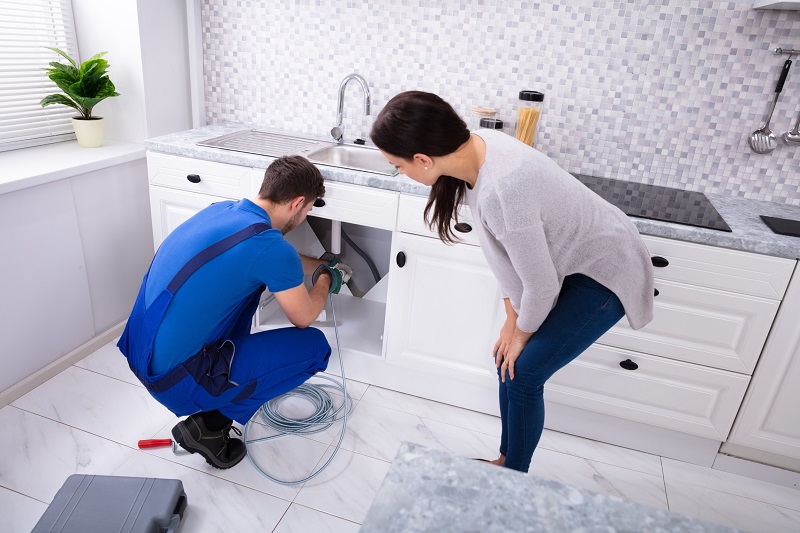
If you are already experiencing issues with a slow drain or clogged toilet, do not hesitate to call a professional, as this may be a sign of a more serious plumbing emergency.
Raymond Gray, Owner and CEO of A-1 Total Service Plumbing, in Los Angeles, agrees with performing preventive maintenance and adds that homeowners should:
“Make sure to maintain and flush your hot water heater before hosting guests, as this will help the water heater produce more hot water.”
He advises this for both regular and Tankless System owners, as sediments from hard water can degrade performance and cause premature breakdown of your heating system.
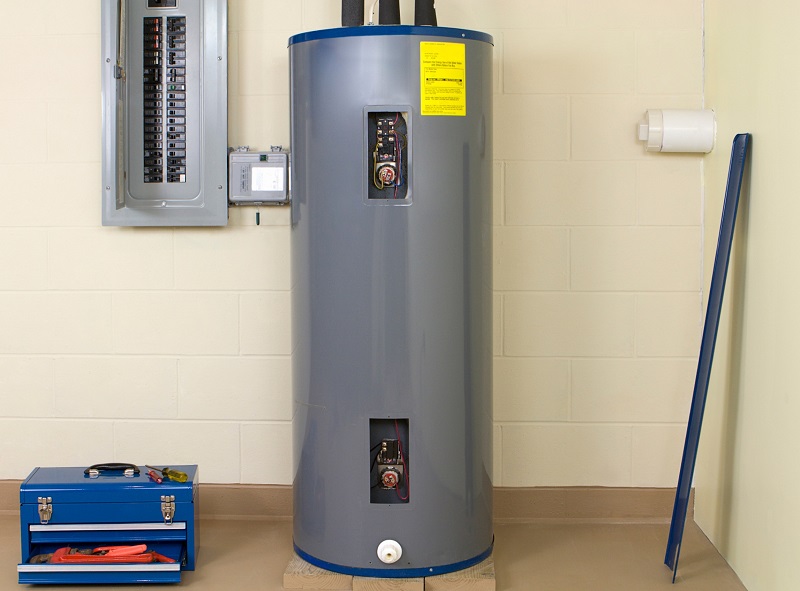
2. Don’t Treat Your Sink and Disposal Unit Like a Garbage Can
Always use sink strainers for all sinks in bathrooms, kitchens, utility rooms, and wet bars to catch any debris, such as hair, jewelry, and the errant martini olive, that may fall into the sink and into the drain, thereby creating a clog.
Never pour grease down the sink. If you’ve ever watched grease and food oils congeal and harden over time, especially during cold weather, you know that it’s a huge mistake to pour food grease and oils down the sink and that you can expect plumbing issues at some future point.
Harpole suggests:
“Use an old heat-safe mug to pour hot grease into, or scrape cooled grease into the trash. Grease will coat the pipes, catch other debris and clog the pipes.”
To further expand on this tip, we suggest you use the sink and garbage disposal correctly, not like a garbage can.
Disposals are great for grinding food debris, but should be limited to certain items. Countless times we have witnessed people rinsing plates, in preparation for placing them in the dishwasher, by scraping everything from the plate into the disposal unit.
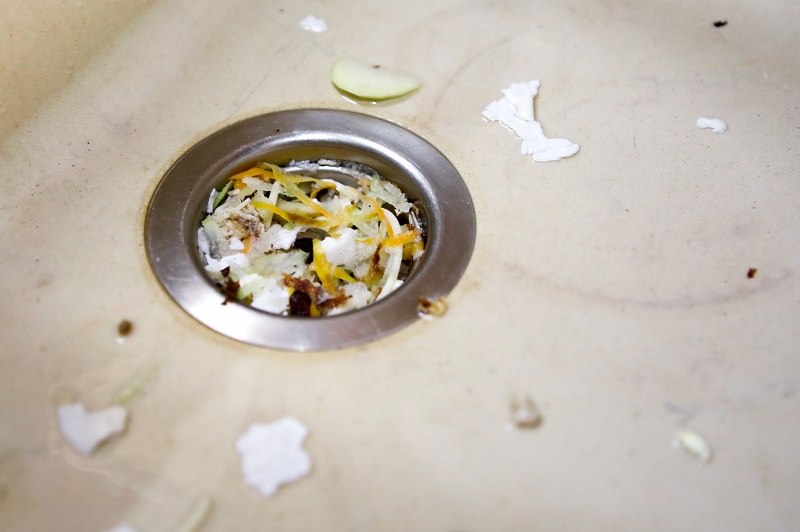
Plumbers will tell you to never put bones, coffee grounds, eggshells, fruit pits, vegetable peels and, of course, grease down the disposal, as these items are prime substances that will lead to a clogged sewer line.
Instead, consider a more constructive use for these common waste items by feeding your household plants directly, or nourishing your garden via a composting bin.
3. Remove Key Items from Your Bathroom
As guests will often find their way to non-guest bathrooms, it is important that certain items that should not be flushed, such as baby wipes, personal toilet wipes and the like, are not made available in any of your bathrooms.
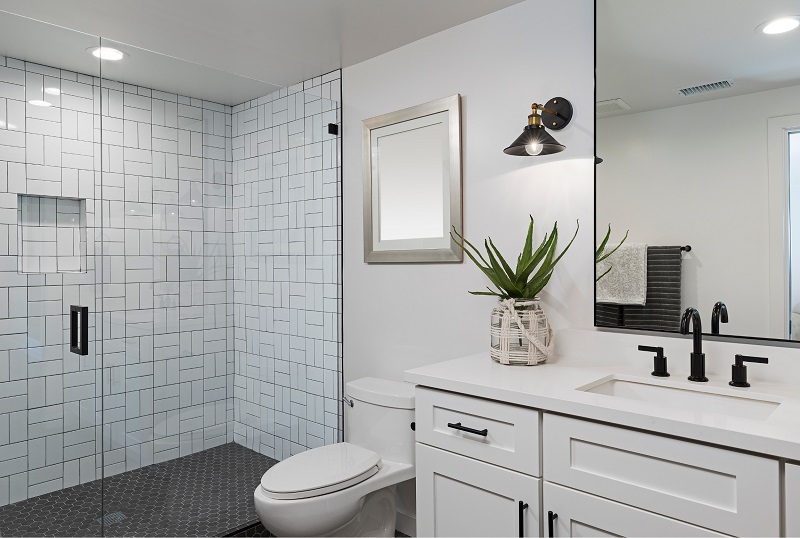
Guests may be tempted to use these items causing stoppages that can impact the home’s mainline, and ultimately every bathroom in the house.
Plumbers agree that the term “flushable wipe” is a myth, despite the manufacturer’s claims on the packaging. Any professional plumber worth his license will agree that toilet wipes, facial tissues, feminine hygiene products, cotton pads and dental floss are all a danger to your home’s sewer system that can lead to blockages and an eventual service call.
Remove all items such as cotton pads, tissues and even Q-tips, as guests are likely to flush these down the toilet in an attempt to hide any evidence of use.
Hosts especially concerned should add tasteful signage in a frame near the toilet reminding guests of explicit flushing guidelines.
4. Don’t Treat Your Toilet Like a Garbage Disposal
While on the subject of “garbage”, don’t treat your toilets and home’s sewer system like a garbage disposal. Ripping up note paper or envelopes and flushing them down the toilet, will result in them not breaking down when in contact with water. These paper products will act like the wood from which they are derived and end up wreaking havoc on your sewer system.
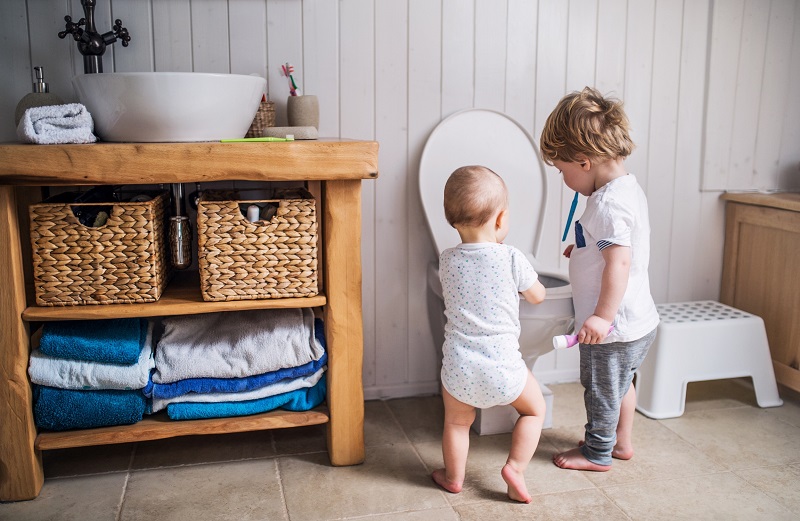
The only things that should be flushed in your toilet are bodily wastes and toilet paper that is made to disintegrate when it comes in contact with toilet water.
5. Perform Your Own Preventive Maintenance
As food and other organic debris will inevitably make its way through your kitchen drain and home sewer line, it is also important to perform your own preventive plumbing maintenance at least a few times a year, and especially prior to receiving guests.
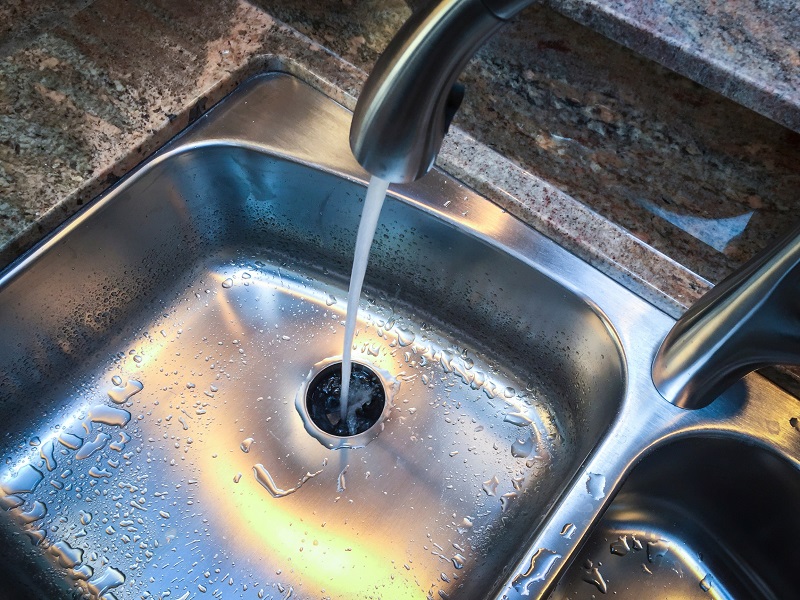
Plumbers suggest one cup of baking soda to neutralize the organic matter in the drain to keep foul odors from building up, especially if the drains are not in use for a period of time.
To get pipes really clean, pour a cup of vinegar down the drain, wait a half hour and follow up with more hot water to remove any organic matter built up in the sewer line.
Following these simple tips should help alleviate any plumbing anxiety when hosting guests, which is often stressful enough!
Additional Recommended Plumbing Reading
- Part 1: Non-Invasive Plumbing Tech for Repairing Your Home’s Sewer Line
- Part 2: Non-Invasive Plumbing Tech: Bids, Proposals & Lessons Learned
- Part 3 Non-Invasive Plumbing Tech: How We Repaired Our Home Sewer Line
- A Simple Guide to Choosing a Water Softener System
- How to Choose a Water Leak Detection System for Your Home
- Repiping Your House: Early Signs It Might Be Time To Repipe
| Purgula is reader-supported. When you click on links to other sites from our website, we may earn affiliate commissions, at no cost to you. If you find our content to be helpful, this is an easy way for you to support our mission. Thanks! Learn more. |

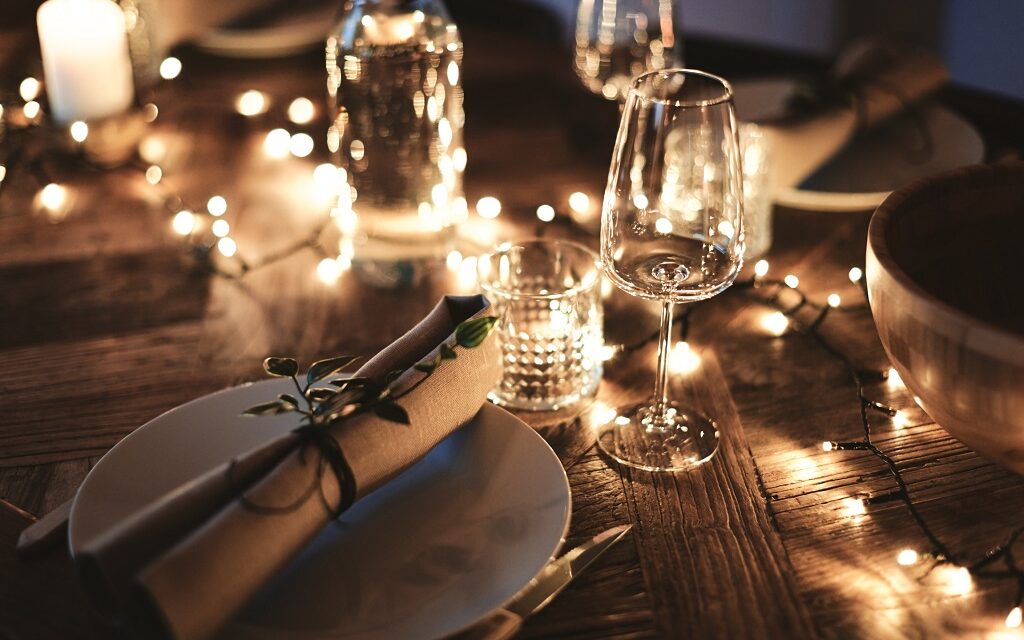






Frequent maintenance is essential, including looking for leaks and blockages to stave off worse problems. It is a helpful tool for homeowners who wish to save pricey repairs and make sure their plumbing system is operating properly.
Last year, during a family reunion, we had a plumbing disaster that flooded the bathroom, and it definitely destroyed the festive atmosphere. Since then, I’ve learned the hard way to never treat the sink and disposal unit like a garbage can, and I’ve become vigilant about reminding guests not to flush anything other than toilet paper. These preventive tips have saved me from further plumbing mishaps and allowed me to focus on creating memorable experiences for my guests.
The insights on removing non-flushable items from bathrooms and not treating toilets as garbage disposals are valuable for preventing plumbing issues.